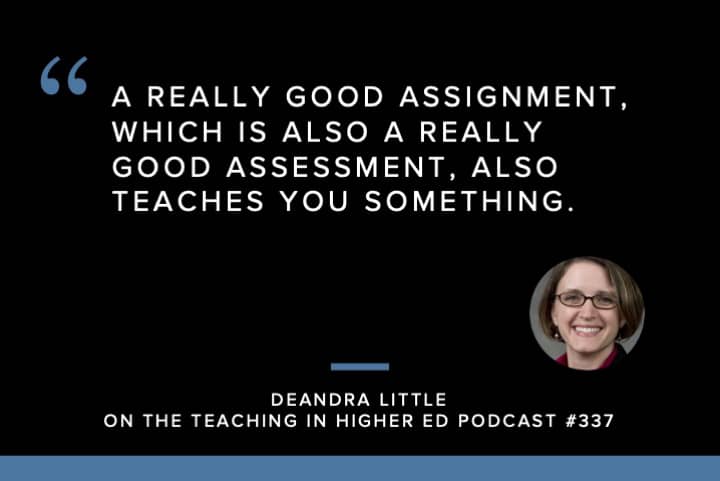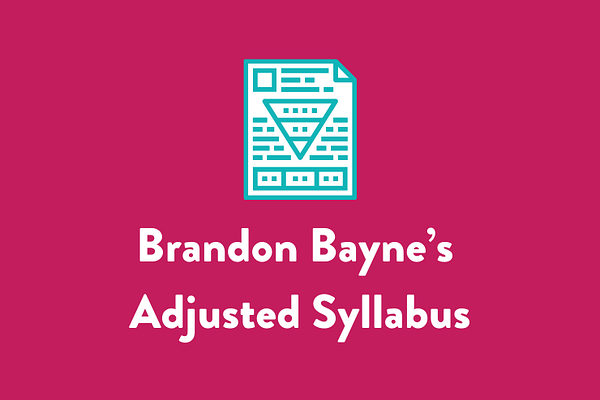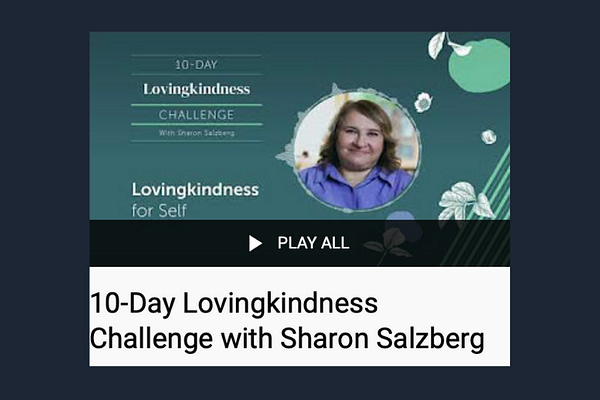Podcast (tihe_podcast):
Play in new window | Download | Transcript
Subscribe: Apple Podcasts | Spotify | RSS | How do I listen to a podcast?
Deandra Little Authentic Assignments on episode 337 of the Teaching in Higher Ed podcast
Category/tags: Assessment and grading.
Quotes from the episode

A really good assignment, which is also a really good assessment, also teaches you something.
-Deandra Little
Thinking about the purpose also helps you talk about meaning.
-Deandra Little





What I found to be most important in this podcast was multiple interpretations made by students that I had assumed had only one scientific interpretation. Of coarse I was not aware of this until I assigned a task that assumed “correct” answer. Often while grading assignments, particularly essays, I found it difficult to grade. It occurred to me that if grading it is torturous then it must have been torturous to learn. The idea of counter arguments in group discussions (playing the devils advocate) would be quite useful.
Working to a real world application in archaeology is very difficult, but cultural relativity and diversity at least in cultural anthropology. Something to work on. Critical thinking is my ultimate goal for students to achieve rather than rope memorization. My exams, although multiple choice, need some thought processing and reasoning, again not just rope memorization. Of coarse this is a little difficult when class attendance in an introductory class is 50 students.
Purpose, in other words, why am I doing this? is something I need to practice in all my lectures and assignments. Creating a motive to learn is essential, not to just get a good grade. In some ways my passion for archaeology seems to be one of my best talents, along with many of my own experiences in archaeology. This kind of bring me into the lives of the student.